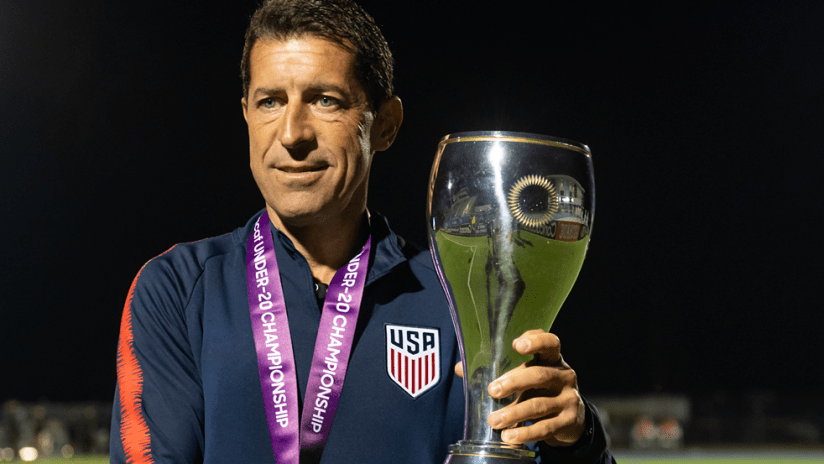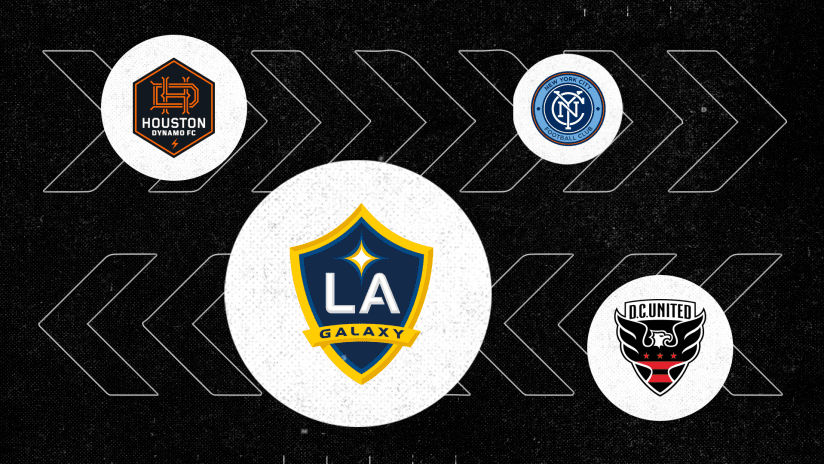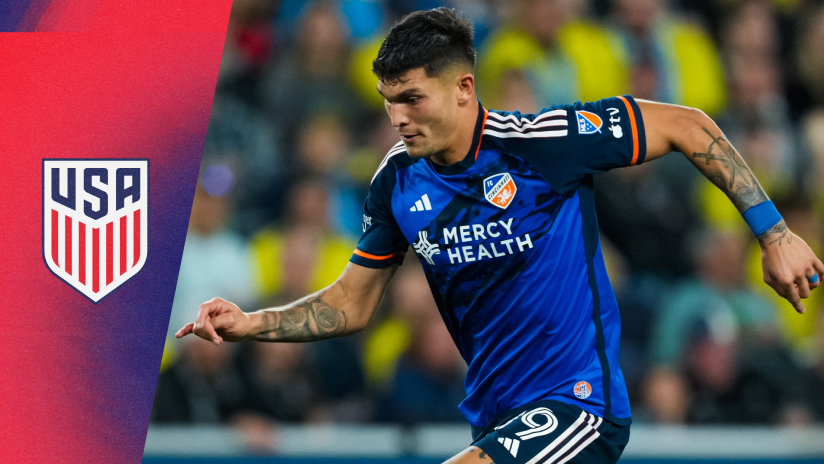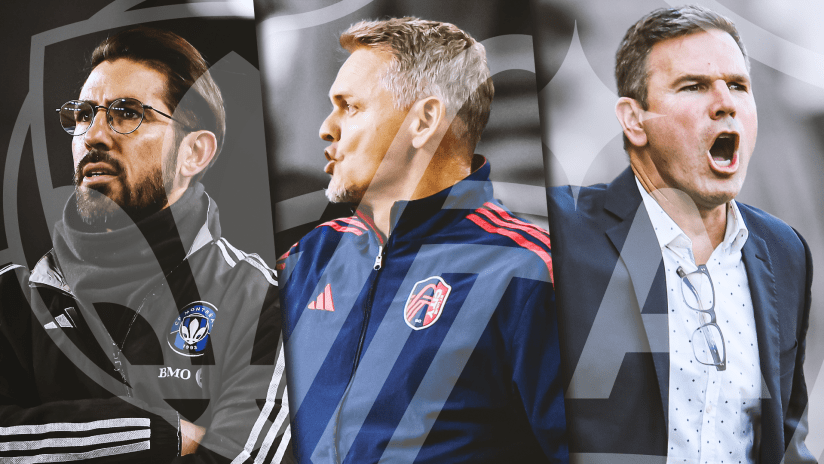After four impressive cycles leading the US Under-20 men's national team, plus his decorated playing career, Tab Ramos is getting his first chance as head coach in Major League Soccer.
Ramos will take charge of the Houston Dynamo, who have missed the playoffs in five of their last six seasons. The news was well-received by both Dynamo fans and MLS neutrals, a sentiment mainly rooted in Ramos' reputation and resume for working with young players and playing proactive soccer. It's a smart appointment by the club and a well-earned opportunity for the coach.
Can Ramos bring about the needed change in Houston? How will that change manifest itself? How quickly can he institute that change?
The obvious: The Dynamo's academy just got a huge boost. Particularly for a team that doesn't have the same budget of Atlanta United, LAFC or Toronto FC, getting contributions from academy talent is vital to success. The Philadelphia Union, FC Dallas and others have proven that's a path to the playoffs. Ramos is key in that transition.
He led the US U-20s to three consecutive quarterfinal finishes at the FIFA U-20 World Cup after taking over a program that failed to qualify the cycle before he took over. This season, his young Americans were one of the better teams at the tournament, helping the likes of Paxton Pomykal, Sergino Dest, Mark McKenzie, Aboubacar Keita, Sebastian Soto and other young talents shine. Ramos also had a wealth of experience coaching elite youth in New Jersey, starting and running his own academy for years.
So far, the Dynamo haven't produced their own Pomykal, McKenzie or Keita, who all got regular minutes in MLS this season. Houston had three Homegrown players on the roster in 2019, led by Memo Rodriguez's seven goals in 1,392 minutes.
How early will his expertise with youth be felt in the first team? The stumbling block, of course, is that academies aren't changed overnight. Talent takes time to identify and develop. The kids will have a route to the first team, but it's dependent on their quality to run through that path. Still, it's a huge step in the right direction.
The other immediate boost is the the Dynamo will get an identity.
Under Wilmer Cabrera, Houston often changed their styles. They made the playoffs in 2017 by sitting deep and shredding teams on the counter, then spent 2018 trying to play more possession-based and 2019 sitting somewhere in the middle, losing their way.
Ramos' U-20 teams always played on the front foot with a modern counter-pressing, possession-based style. The most recent side played in a 4-3-3, with dynamic wingers and a busy midfield. He prefers a possession-dominant defensive midfielder rather than a traditional destroyer. Think Ilie Sanchez of Sporting Kansas City instead of Eric Remedi of Atlanta.
The center backs are expected to build possession through that defensive midfielder, who quarterbacks the team. Ramos made Gedion Zelalem a game-controlling No. 6 during his time with the U-20s when he was a highly-touted attacking prospect with Arsenal, before injuries derailed his development. The wingers will have freedom, the midfielders will be dynamic.
Ramos has the chance to have a similar impact on the club like Luchi Gonzalez did in his first season with Dallas. Not just because of their previous experience with youth and both being Texas clubs, but because Gonzalez instilled an identity on his FCD sides. You knew their basic principles. They had passing patterns and consistent structure. He made tactical tweaks when necessary, but they weren't huge ideal shifts.
It could be just what the club needs. But now, it's a transitional offseason. There are a number of questions hanging over Ramos' Dynamo.
What happens with Alberth Elis? What happens Mauro Manotas? If both stay, how good can they be under Ramos? If Manotas stays, does Ramos switch to a two-striker system to best accommodate Manotas and Christian Ramirez, whose partnership showed promising signs late last season? Who will be his game-controlling No. 6? Is Matias Vera that guy? How quickly can the Dynamo get younger, be it internally or with transfers? Will there be one more big-name player to come? Can Ramos get the most out of Tomas Martinez and the club's other talented attackers?
There are questions over Ramos too, of course, like any other new hire. The club game is different than the international game, particularly with the U-20s. He'll have to manage different personalities and the group won't change every two years. But you've got to start somewhere and the chance has been earned through results with the U-20s, soccer philosophies and reputation.
Houston are in a precarious position and Ramos could signify a culture change, focusing more on promoting youth and finding an identity. There are a bunch of questions still to be answered, but it's a promising start for the Dynamo.













